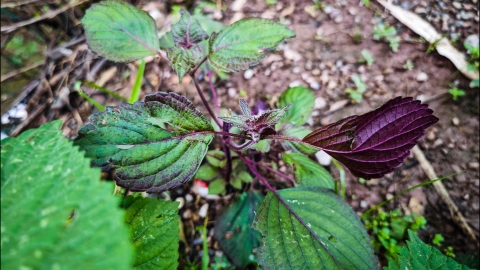Can I eat perilla during the postpartum confinement period?
The term "sitting the month" usually refers to the postpartum period. Under normal circumstances, perilla can be consumed during the postpartum period, as long as it is done in moderation. Detailed analysis is as follows:

Perilla is a vegetable used both as food and medicine. It is nutritionally rich, containing protein, vitamins, dietary fiber, iron, calcium, and other nutrients, which can meet the nutritional needs of women during the postpartum period for bodily recovery and breast milk production. From the perspective of traditional Chinese medicine, perilla is warm in nature and enters the lung and spleen meridians, offering functions such as dispersing cold, relieving exterior syndromes, and regulating qi. Women in the postpartum period tend to have reduced physical activity and slower gastrointestinal motility, making them prone to symptoms such as constipation, bloating, and gastrointestinal discomfort. The dietary fiber, vitamins, and soluble sugars contained in perilla can help strengthen the spleen, warm the stomach, and regulate qi, thereby alleviating these uncomfortable symptoms. In addition, perilla also helps promote lactation; its warming and dispersing properties can improve blood circulation, thereby stimulating the mammary glands to secrete milk, helping to meet the needs of newborns for breast milk.
However, women during the postpartum period should consume perilla in moderation, as excessive consumption may irritate the gastrointestinal tract and lead to symptoms such as acid reflux and diarrhea due to its fiber content. When consuming perilla, fresh ingredients should be chosen, and cooking methods should be light and healthy, such as stir-frying or making soup. It should not be consumed together with crabs, carp, vinegar, or other foods that may cause indigestion. In addition, women during the postpartum period should rest in bed appropriately, develop regular sleeping habits, and engage in moderate physical activity after their condition stabilizes, to promote physical recovery.






